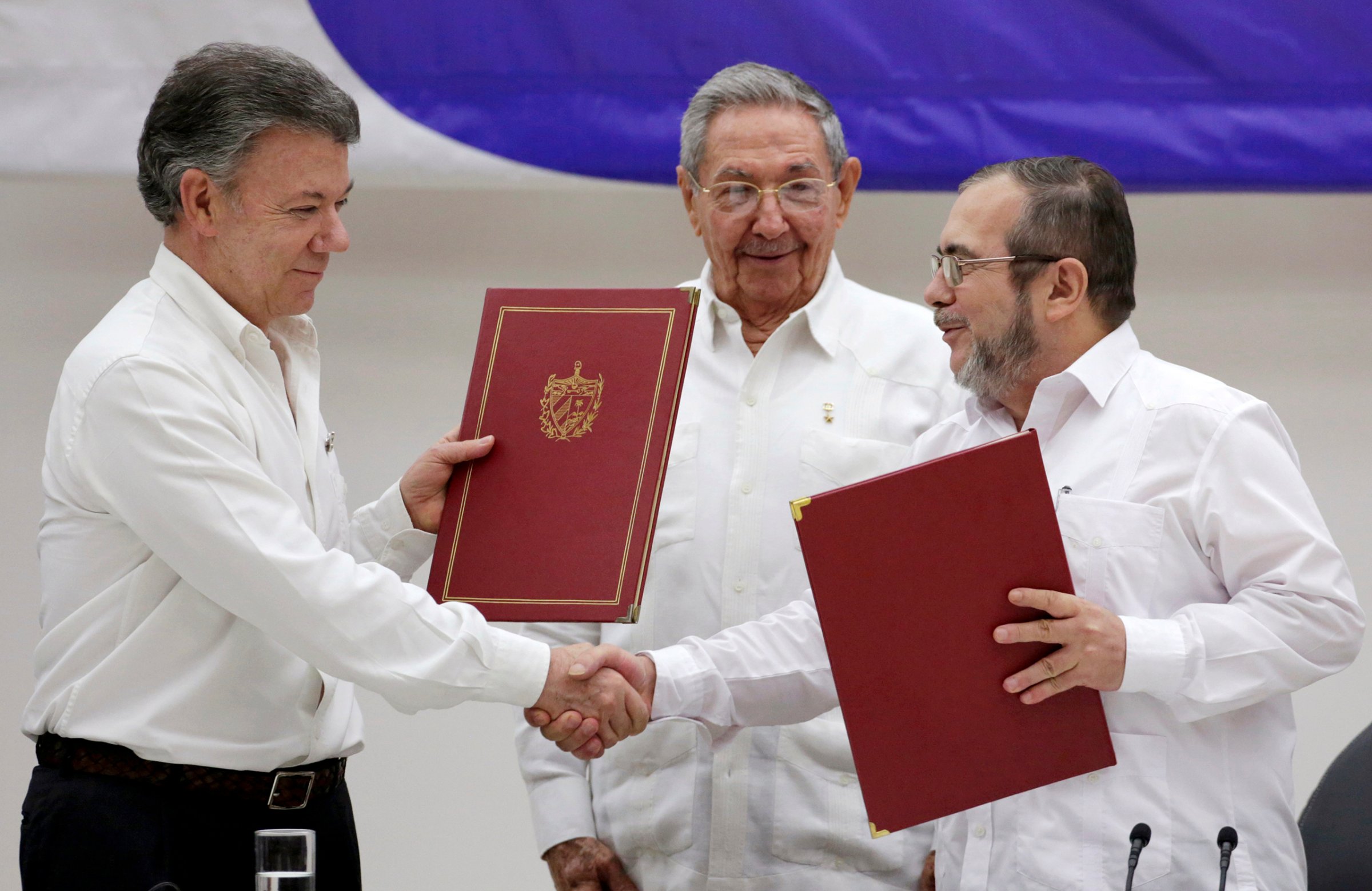
After nearly four years of peace talks Colombian President Juan Manuel Santos signed a ceasefire with Marxist rebels on June 23 in Havana, Cuba. The agreement ends a half century-old guerrilla war that has killed more than 220,000 people. Under a final peace accord expected later this summer, the Revolutionary Armed Forces of Colombia, the rebel group known as the FARC, will disarm and form a political party. Rebel commanders accused of war crimes will be judged by special tribunals – but face only token punishment.
For his efforts Santos, a 64-year-old economist, navy veteran, and former defense minister, could be a strong contender for Nobel Peace Prize. But at home his popularity is sagging due, in part, to concessions his government has made to the widely despised FARC. Santos discussed these issues in a recent interview with TIME.
Colombian presidents have tried and failed to make peace with the FARC since the 1980s. Why are these negotiations working?
I have always known that in order to have peace you need to be able to make war. We strengthened the armed forces and improved joint operations and intelligence. For the first time we were able to (target) top FARC commanders. That was the tipping point. The FARC began to realize that they would never achieve their goals through armed struggle. That allowed us to negotiate from a position of strength.
Is fighting still going on?
We’ve had a very peaceful situation for the last two months. People have become accustomed to not having attacks. My wife used to visit the military hospital and there was an average of 20 to 30 soldiers arriving every day wounded or without legs. But over the past month there have been only four.
But because the war has died down, many Colombians don’t view a peace treaty as important…
People have other concerns, especially in people in the cities, because they don’t feel the war. But when you go to the countryside and the areas where there is conflict, they are very enthusiastic about peace.
This is your moment of glory. Yet a recent Gallup poll put your job-approval rating at 21%….
Making war is more popular than making peace. Some people don’t understand that I am now sitting down with the enemy and making concessions. This has come at a very high cost (to my popularity) but I think it will turn into an investment when people see that we delivered.
FARC leaders accused of war crimes will not go to prison. Is that the price for peace?
The transitional justice system we have set up is going to become a precedent for other conflicts. It’s the first time ever that a guerrilla group will lay down its arms and have its leaders investigated, judged, condemned and sanctioned. Maybe they won’t go to a normal jail but their freedom will be restricted for up to eight years. There will be sanctioned. They will pay.
After demobilization the FARC plans to form a political party. How do you view its future?
I hope they are relatively successful. This is what democracy is all about. I think their Marxist-Leninist ideals are way out of touch with today’s reality. But it will be important for democracy that they are successful in gaining a space in the political arena of the country.
After supporting Colombia’s war effort, how important is U.S. support for the peace process?
The FARC long considered the U.S. as one of its enemies. So to see the U.S. supporting the peace process was extremely useful. President Obama was one of the first people who knew about my intentions to pursue peace. He said: “That’s the correct path. Go for it.”
More Must-Reads from TIME
- Why Trump’s Message Worked on Latino Men
- What Trump’s Win Could Mean for Housing
- The 100 Must-Read Books of 2024
- Sleep Doctors Share the 1 Tip That’s Changed Their Lives
- Column: Let’s Bring Back Romance
- What It’s Like to Have Long COVID As a Kid
- FX’s Say Nothing Is the Must-Watch Political Thriller of 2024
- Merle Bombardieri Is Helping People Make the Baby Decision
Contact us at letters@time.com